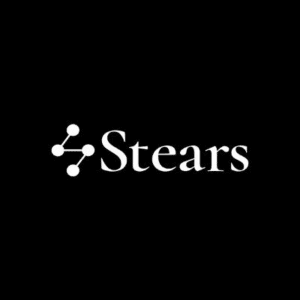
Frequent imposition of fines scaring investors from capital market — Shareholders
Some shareholders of companies quoted on the Nigerian Exchange have expressed worry that the frequent imposition of fines on companies defaulting from post-listing requirements is scaring away investors and potential companies willing to list on the nation’s capital market.
The shareholders stated that the market regulators must pursue friendly policies and initiatives through dialogue with market operators to push the market forward.
They agreed that the regulators should not condone a breach of listing rules of the Exchange which must often lead to fines/penalties. However, they recommended alternative sanctions because the imposition of monetary fines is crippling some of these companies financially.
This year alone, some 17 NGX-listed firms were fined a total of N93.920 million for failure to file their financial statements after the regulatory due date.
It showed that the companies were sanctioned for their inability to meet the regulatory requirements of filing ranging between the third quarter of 2021 and the third quarter of 2022.
Among the companies that were fined is Coronation Insurance Plc led with N14.9 million of the fines which represent 36.34 per cent of the total fines while Royal Exchange Plc followed with a fine of N9.8 million, Mutual Benefits Assurance Plc was fined N6.2 million, LASACO Plc got a fine of N5.3 million while Veritas Kapital Assurance trailed with N4.8 million fine. Others include First Bank Holding Plc led with N8.1 million of the fines while Unity Bank Plc followed with a fine of N4.2 million and Union Bank Plc trailed with N1.2 million, among others.
The shareholders advised the Exchange and other regulators that if such fines continue, potential investors and even existing ones will be discouraged.
In its latest X-Compliance report, the Nigerian Exchange explained that the listing rule was designed to maintain market integrity and protect investors by providing compliance-related information on all listed companies. The listing rule specifies this:
“Companies that are listed on the Exchange are required to adhere to high disclosure standards which are prescribed in Appendix 111 of the Listing Rules.
“Financial information which is periodic disclosure and on-going material events disclosure should be released to The Exchange in a timely manner to enable it efficiently perform its function of maintaining an orderly market.”
The President of the New Dimension Shareholders Association, Mr Patrick Ajudua said he agrees that too much fine is scaring away investors in the capital market.
He added that as shareholders they don’t condone a breach of listing rules of the exchange which must often lead to fines/penalties but they have encouraged regulators to do such with a human face.
“Some of these breaches are not their fault as they also as a company report to their primary regulators before sending the report to the exchange. Therefore they should not be penalized for offences that they have no power to avoid.
“Also, fines in their nature are meant to serve as a punitive lesson to them but the question is why is there a continuous breach? The regulator needs to sit down with such a company and find a better way to avoid such.
“In a situation of a hostile business environment, high cost of doing business, and unfavourable government policies, when you now add the burden of fines and penalties the tendency of the market to attract new investors is next to zero, and even old ones will use that as an excuse to exit the market such as was done by Mobil Plc.”.
Ajudua noted that fines or penalties should be the last resort by regulators and efforts must be made to encourage constant dialogue adding that where this fails then such fines must be done with a human face knowing fully well that such payment is always made by the company from shareholders’ fund.
The Chairman, of Issuers and Investors Alternative Dispute Resolution (IIADRI), Mr Moses Igbrude, said,
“Whatever is happening to the environment affects everything, this is what we get when there are policy issues. When regulators like SEC and NGX are allowed to be self-funded and generate revenue for their operations by the government, their drive would be to make money through levies, dues, and penalties to remain in operation,” he said.
Igbrude who said SEC recently increased all its fees across the board, explained that before annual general meetings are held, the proxy material fee paid to the SEC was initially N5000.00 but with the recent increment, it has gone up to N500,000.00.
“On what justification will SEC move the fee from N5000.00 to N500,000.00? SEC has the power for regulation but when it comes to fees, the Commission is supposed to consult and engage the stakeholders to determine the economic situation these companies are facing.
“We are not saying that the NGX should not penalize defaulters but with engagement and dialogue and it must be with a human face.
“For example, companies like Tantalizers that are in distress state need to be identified and engaged for possible help and incentives that will bring them back to life instead of using fines to finally nail their coffin. These companies are finding it very difficult to operate, even paying salaries is a herculean task and they are being penalized.
“What are the benefits a company listed on the Exchange enjoys over non-listed ones? My thinking is that Exchange should engage the government to encourage quoted firms with incentives that would attract other companies to list on the market,” he said.
The National Coordinator of the Progressive Shareholders Association,Mr Boniface Okezie said market regulators must pursue friendly policies and initiatives to push the market forward.
“The NGX needs to go all out to find out the exact state of the companies. To find out if they can overcome their problems in a short while rather than taking the hostile decision to delist them,” Okezie said.



